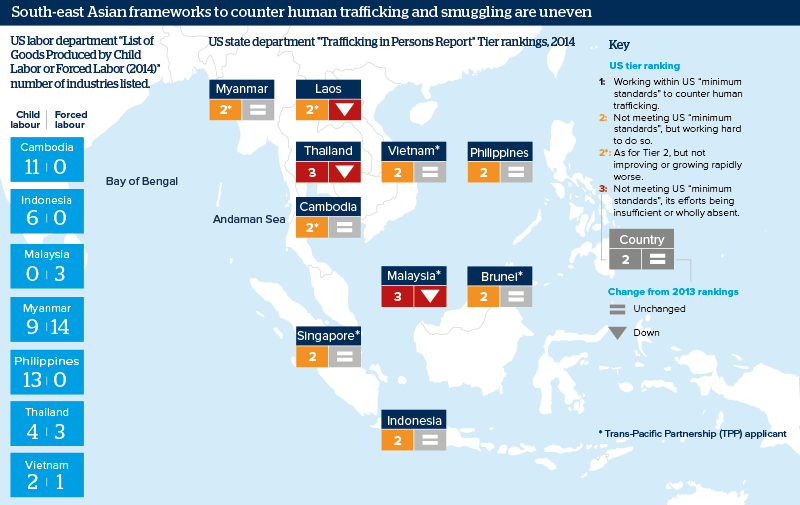Illegal trade in people may hinder ASEAN progress
ASEAN's human trafficking and smuggling difficulties require capacity-building and security responses

Source: UNHCR, US Department of State, US Department of Labor, Oxford Analytica
Outlook
Rohingya and Bangladeshi migrant-filled boats heading for Indonesia and Malaysia in May reflect South-east Asia's broader human trafficking and human smuggling problems; on May 19, the UNHCR estimated that 88,000 "migrants and refugees" had crossed the Andaman Sea and Bay of Bengal since January 2014, 25,000 of them in the first quarter of 2015.
Many human trafficking victims become forced labourers or forced sex workers. Children are trafficked for both purposes. Human smuggling is often for illegal labour migration.
Pressure will grow for ASEAN and its members to develop legal, welfare and security capacity to counter human trafficking and smuggling. However, not all ASEAN countries have the political or economic ability to do so speedily.
Impacts
- Unless ASEAN member states can build capacity, ASEAN economic integration may exacerbate human trafficking and smuggling.
- Negative US rankings of ASEAN states' counter-trafficking and smuggling work could slow the Trans-Pacific Partnership (TPP).
- The TPP has not been finalised; Thailand, the Philippines and Indonesia may apply later given sufficient domestic will.
- ASEAN states will increase maritime surveillance and patrols; drones and coast-guard modernisation may be needed.